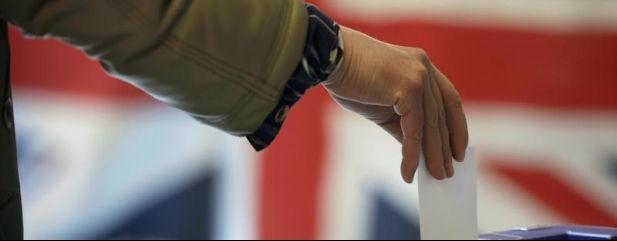Archived article
Please note that tax, investment, pension and ISA rules can change and the information and any views contained in this article may now be inaccurate.
What will a general election mean for the markets and the economy?

Prime minister Rishi Sunak’s decision to call an early general election came too late for UK investors to respond, but the ‘day after the night before’ saw the the FTSE 100 close 30 points or 0.4% lower at 8,339 which is hard to read anything into as far as markets are concerned.
A more telling reaction was the bounce in sterling, which continued its month-long advance against the euro as any chance of a Bank of England rate cut on 20 June now looks highly unlikely whereas the ECB (European Central Bank) looks almost certain to cut when it meets next week.
In theory, markets should be pleased there is one less uncertainty to deal with in terms of the timing of the election but there is still a question mark over what a potential change of government means for the economy and for stocks.
James Henderson, co-manager of Henderson Opportunities Trust (HOT), Lowland (LWI) and Law Debenture (LWDB), believes the election could be good for the economy and for UK shares.
‘It could break log-jams on major investment decisions we’re seeing in several industries. The Labour commitment to house building maybe difficult with the planners but is real and could benefit companies with large landbanks.
‘Labour governments have traditionally been good for domestic infrastructure companies, but infrastructure investment is needed regardless of who wins. We need new schools, prisons and hospitals.’
A Labour win wouldn’t be great news for consultants and outsourcers, however, as one of the party’s election pledges is to introduce an ‘Office for Value for Money’ to oversee how taxpayers’ money is spent and cut government spending on consultancy by half, using the money instead to boost long-term staffing.
One short-term beneficiary of the early election is the tobacco sector as the Tobacco and Vapes Bill cannot be rubber-stamped before parliament is formally dissolved on 30 May.
Tobacco stocks were knocked down when Rishi Sunak proposed the bill last October, although any relief is likely to be short-lived whoever wins the election as the Labour party supports the motion in principle.
An early casualty of the election is the mooted NatWest (NWG) share sale although the ‘British ISA’, announced in the Spring Budget, which is aimed at boosting investment in UK companies by allowing individuals to buy up to £5,000 in UK shares on top of their existing £20,000 ISA allowance, may be backed by Labour.
Important information:
These articles are provided by Shares magazine which is published by AJ Bell Media, a part of AJ Bell. Shares is not written by AJ Bell.
Shares is provided for your general information and use and is not a personal recommendation to invest. It is not intended to be relied upon by you in making or not making any investment decisions. The investments referred to in these articles will not be suitable for all investors. If in doubt please seek appropriate independent financial advice.
Investors acting on the information in these articles do so at their own risk and AJ Bell Media and its staff do not accept liability for losses suffered by investors as a result of their investment decisions.
Issue contents
Editor's View
Feature
Great Ideas
News
- Watches of Switzerland shares fall on flagging demand for luxury goods
- AI chip champ Nvidia adds $230 billion in a day
- AstraZeneca shoots for the stars, GSK wins first Zantac trial and PureTech Health launches tender at a premium
- What will a general election mean for the markets and the economy?
- Seraphim chimes once again with investors
- Why Marks & Spencer can maintain its momentum
- Pressure mounts on cybersecurity hot stock Crowdstrike
 magazine
magazine








